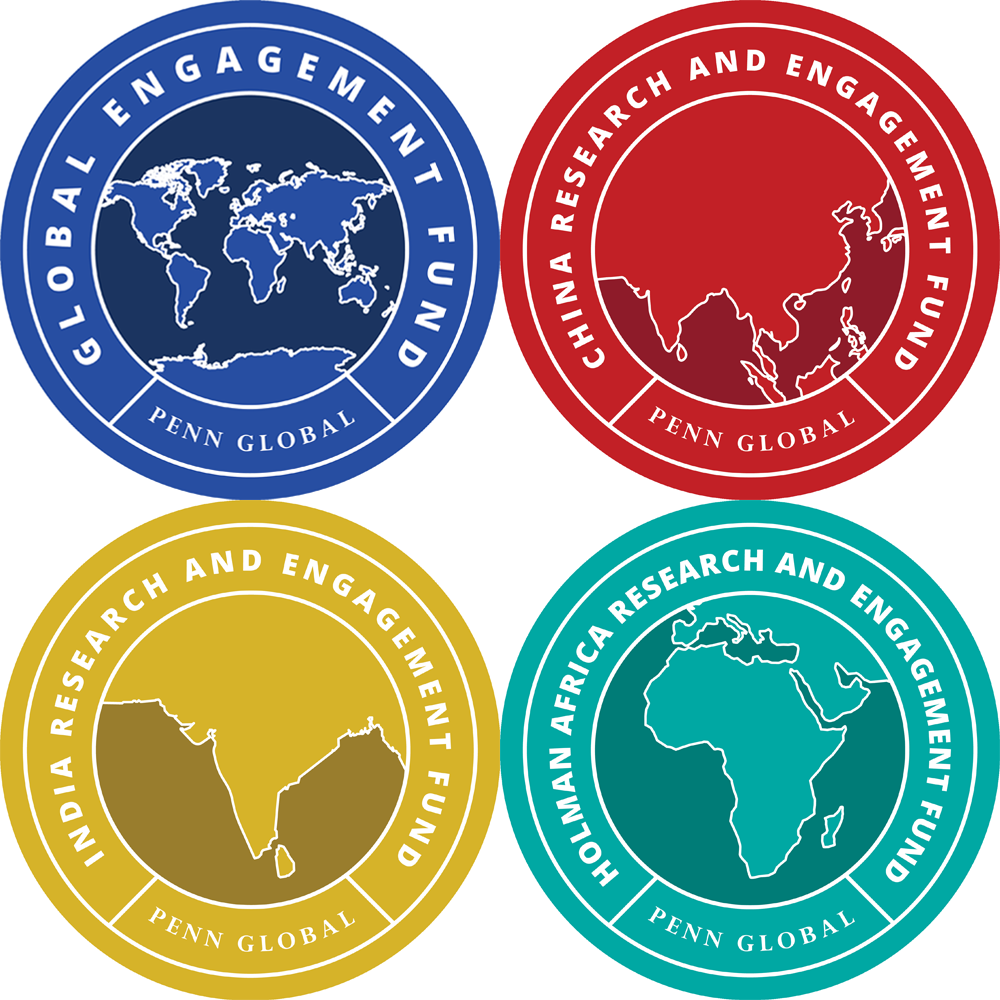
Penn Global Grants Awarded to 16 New Faculty-led Projects
Sixteen faculty-led projects have been selected this year to receive Penn Global research and engagement grants. Award recipients were announced at Penn Global’s annual grant launch on Thursday, May 2.
The Penn Global Research and Engagement Grant Program, commonly known as the Penn Global Grant Program, supports new or established projects that leverage Penn research and expertise to advance knowledge in and of communities around the world. The grant program consists of the Holman Africa Research and Engagement Fund, China and India Research and Engagement Funds, and the Global Engagement Fund.
“We are proud to support the important work led by our faculty and their commitment to global engagement,” says Amy Gadsden, associate vice provost for global initiatives. “The strength of this year’s cohort reflects the breadth of actionable research and expertise across our faculty and demonstrates Penn’s reach and impact around the world.”
Much of this year’s projects address urgent global challenges—including climate and public health—through focused, integrated research-driven efforts. On climate, faculty will build awareness and engagement through capacity building opportunities, from developing environmental education curricula for college students in India to developing public awareness campaigns about climate adaptation challenges in the Dutch Caribbean. On health, projects range from designing Cesarean delivery train-the-trainer programs, to studying the efficacy of pediatric resuscitation education interventions, to launching research initiatives that focus on the power of artificial intelligence to enhance healthcare outcomes. Other projects focus on migration in Greece and the protection of global critical infrastructure amid growing geopolitical tension and instability.
Ezekiel Emanuel, vice provost for global initiatives, emphasized the importance of the grant program as a tool to lead on the great challenges of our time, a priority set forth by the University’s strategic framework, In Principle and Practice.
“A top priority for our office – for over a decade now – has been to integrate knowledge across Penn,” says Emanuel. “That’s how we generate innovative solutions – we need to bring together faculty from different disciplines. We need that expertise and those experiences pooling together to spark fresh ideas. And that’s what this program is positioned to do: seed interdisciplinary initiatives that have enormous potential for addressing today and tomorrow’s biggest challenges.”
The grant program also offers a valuable first step for faculty interested in adding global dimensions to their research. Half of the faculty supported this year are first-time grant recipients.
“It’s important that we support faculty at every stage of their career, from those just establishing their research portfolio to those looking to broaden the international scope of their work,” says Scott Moore, director of strategic initiatives at Penn Global. “For many, the grant program has been a vital launching pad to expand their work. Faculty often apply to the grant program when they want to pilot an idea and build the foundation for a larger, multi-year project that can be further scaled in collaboration with future partners. We’re excited to work with all new and established faculty grant recipients in this year’s cohort.”
This year’s grantees include:
Generative AI for Efficient and Equitable Healthcare on a Global Scale
Hamsa Bastani, The Wharton School
Adoption, Usage, and Optimal Financing of Electric Cookstoves
Susanna Berkouwer, The Wharton School
Global Lives of Medicine
Hsiao-wen Cheng, School of Arts and Sciences
Cultural Adaptation of Digital HIV Intervention for Men Who Have Sex with Men in South Korea
Seul Ki Choi, School of Nursing
Learning from US and EU Approaches to Challenges in Modern Drug Regulation
Holly Fernandez Lynch, Perelman School of Medicine
Latin American Economic History Book Project
Jesús Fernández-Villaverde, School of Arts and Sciences
Environmental Awareness, Attitudes and Behaviors: Developing Curriculum
Femida Handy, School of Social Policy and Practice
Penn-NYU Shanghai Project on Preparing China’s Children for the Future
Emily Hannum, School of Arts and Sciences / Graduate School of Education
The Lived Refugee and Immigrant Experience in Greece
Fariha Khan, School of Arts and Sciences and Fernando Chang-Muy, Carey Law School
Safer Cesarean Deliveries: A Train-the-Trainer Program in Tanzania
Victoria Mui, Perelman School of Medicine
Efficacy of a Novel Pediatric Resuscitation Educational Intervention
Madiha Raees, Perelman School of Medicine
Creating Research-based Animated Videos About the Dutch Caribbean Islands
Simon Richter, School of Arts and Sciences
Policy and Technical Methods for Global Critical Infrastructure Protection
Benjamin Schmitt, School of Arts and Sciences / Kleinman Center for Energy Policy
Implementation of Artificial Intelligence in Diabetic Retinopathy Care in South Africa
Michelle Sun, Perelman School of Medicine
Climatic Hazards, Schooling, and Learning in Sub-Saharan Africa
Amrit Thapa, Graduate School of Education
Transferable Clinical Algorithms from Medical Literature
Mark Yatskar, School of Engineering and Applied Science
The full list of projects, along with their project descriptions, are available on Penn Global’s grant program website.
Penn Global Publishes its First Grant Program Impact Report
Earlier this year, Penn Global also published its first impact report for the grant program.
Since its launch in 2011, the Penn Global grant program has awarded more than $12 million in funding to over 200 faculty from across all of Penn’s 12 Schools. Many of the projects – initially supported by Penn Global in their earliest stages – have grown significantly, securing additional funding or forming partnerships with distinguished institutions such as the Bill and Melinda Gates Foundation, Carnegie Corporation of New York, federal agencies, and multilateral organizations.
Projects have translated into tangible, real-world impact, a core objective of Penn’s global strategic framework. The Indo-U.S. Road Traffic Accident and Injury Response Program, led by Professor of Anesthesiology and Critical Care Vinay Nadkarni, has trained over 4,000 first responders and school children and saved over 60 lives. A One Health Initiative in Peru, led by Assistant Professor of Epidemiology Ricardo Castillo-Neyra, developed strategies to prevent dog-mediated human rabies. The open-access “Teaching Beyond September 11th” curriculum for high school and college educators, spearheaded by Senior Lecturer and Director of the International Educational Development Program Ameena Ghaffar-Kucher, has been adopted in classrooms worldwide, following over 5,000 downloads across 110 countries.
Projects have also inspired new courses, created mentorship opportunities, and established meaningful connections around the world.
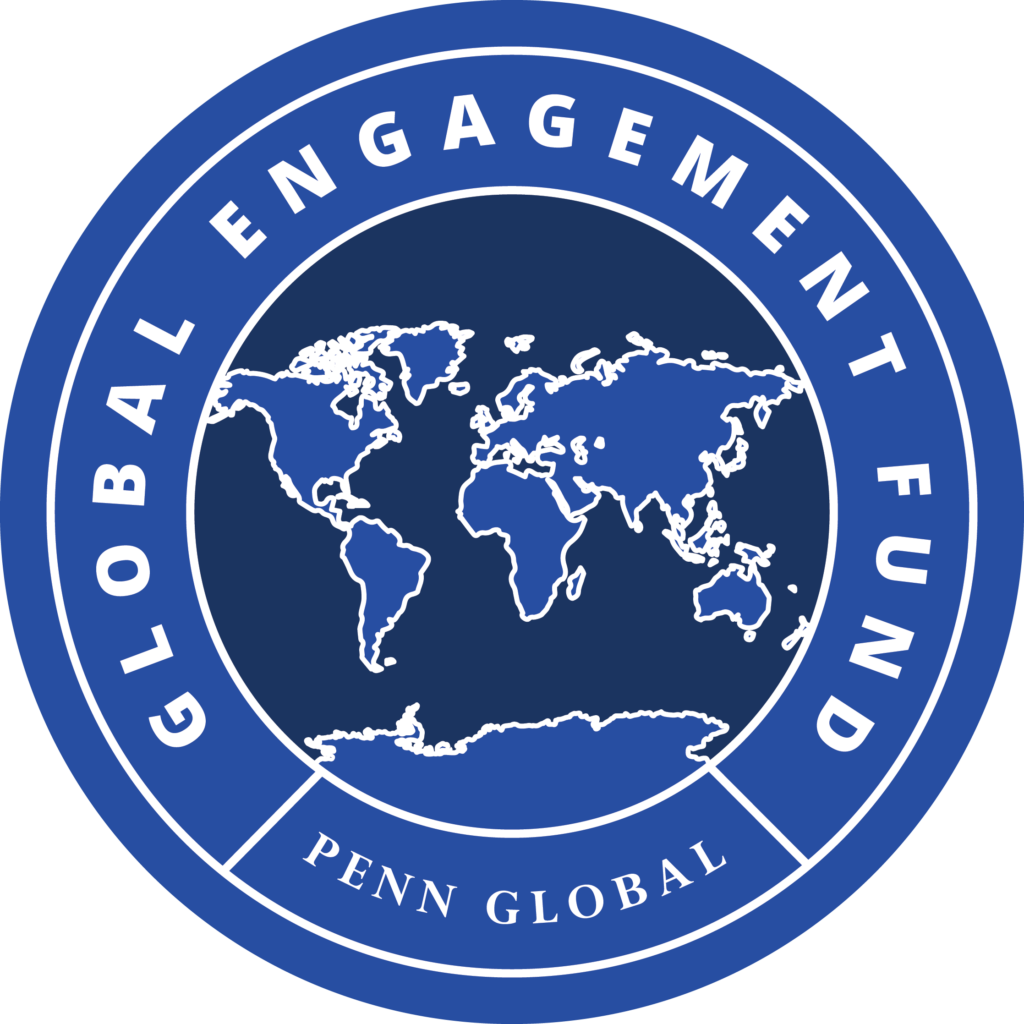
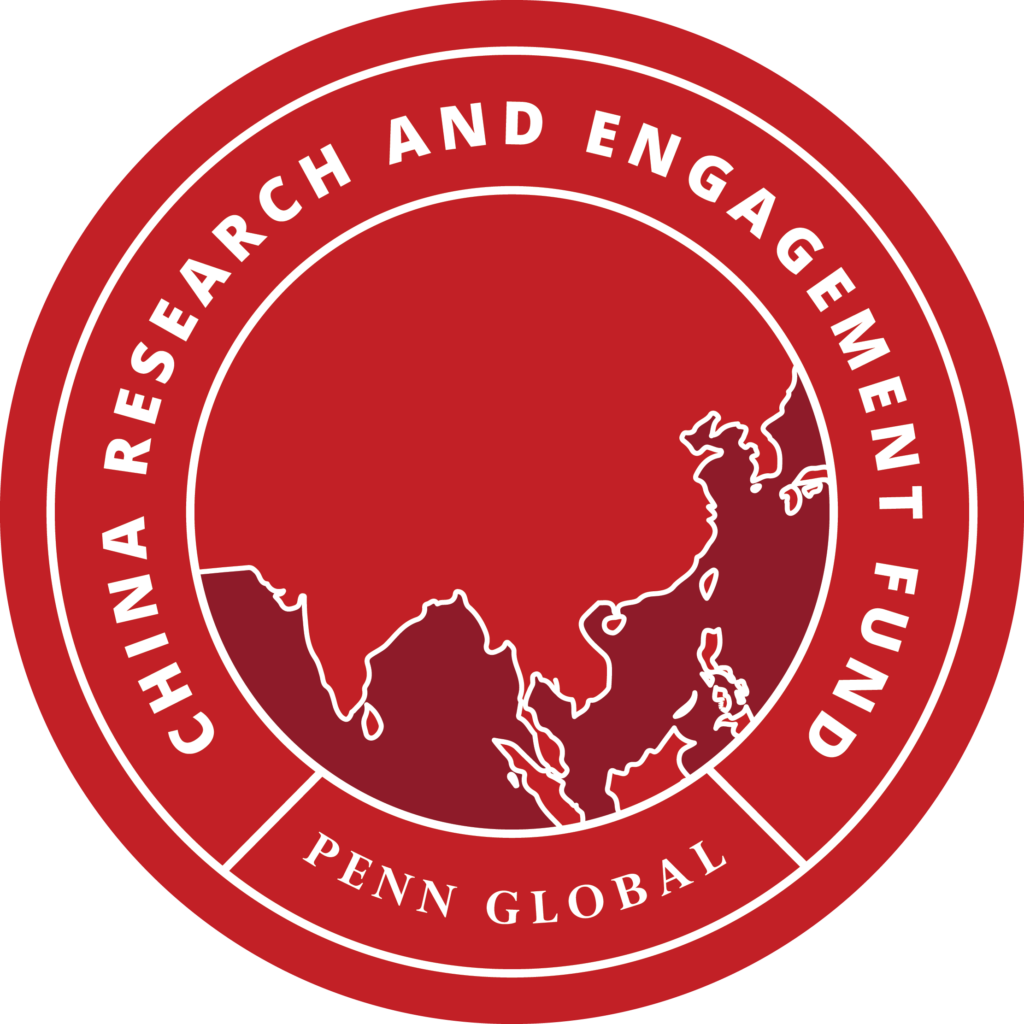
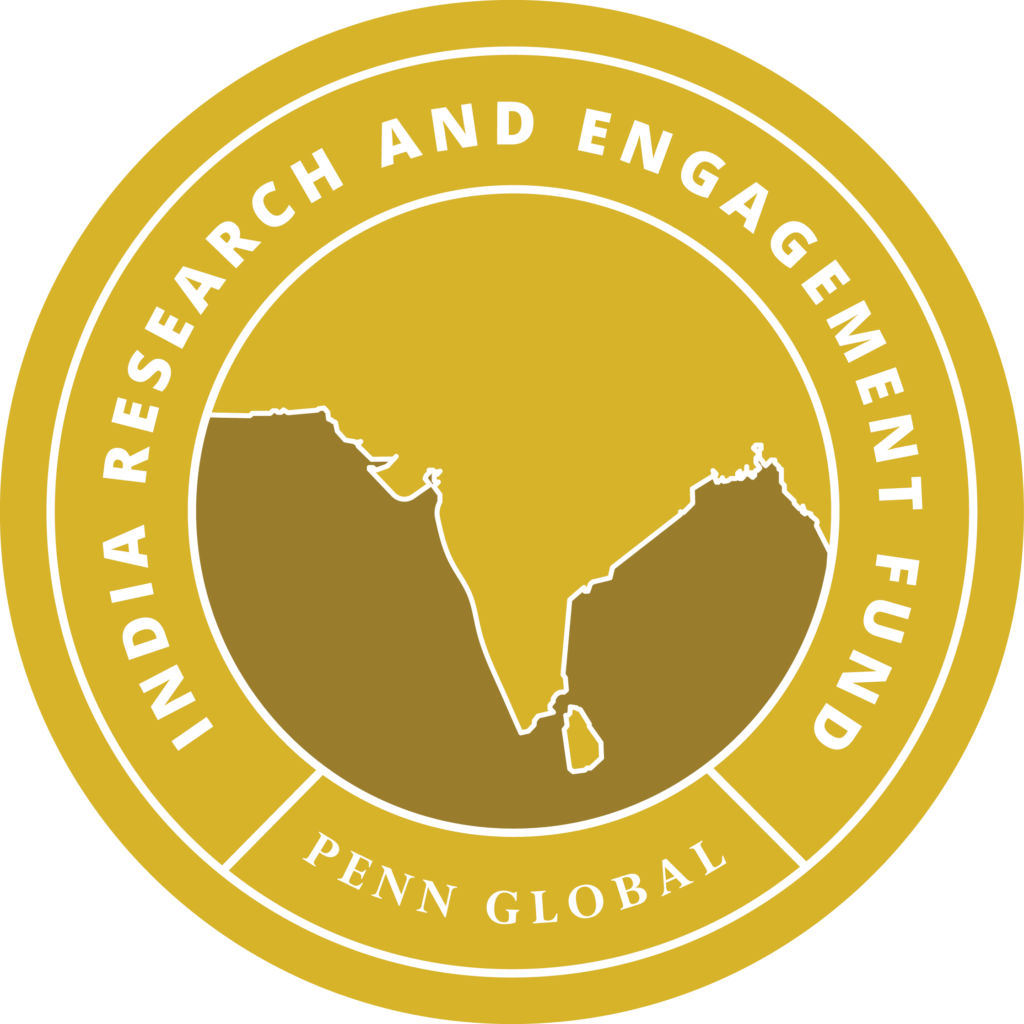
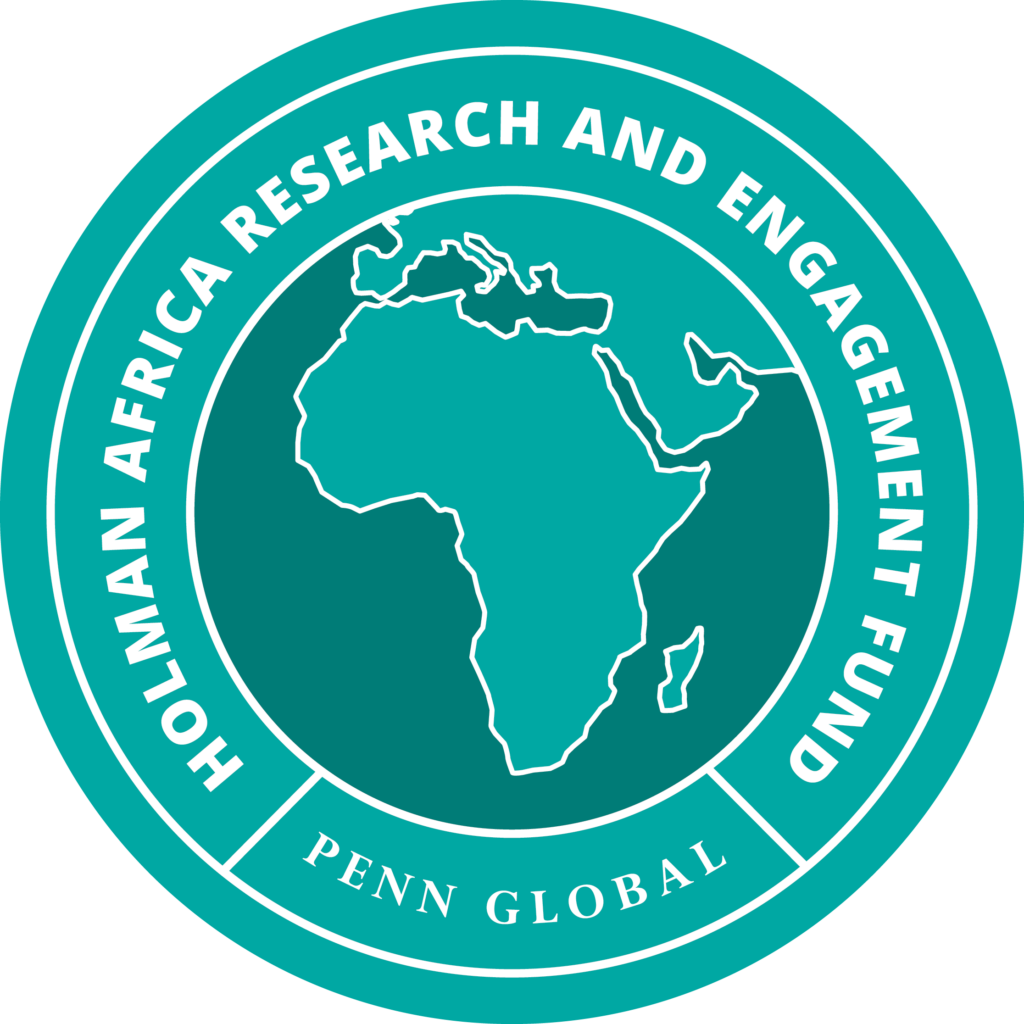
“Across the hundreds of projects we’ve supported through the grant program, we’ve made a deliberate investment in the future,” says Gadsden. “Many of these initiatives – a dozen of which are highlighted in our report – started small but have grown significantly over time, generating new insight and shaping our understanding of the world.
“We know that change doesn’t happen overnight, but by investing in our faculty, their scholarship, and our research priorities, we build a strong foundation for Penn to drive meaningful change for a better future.”